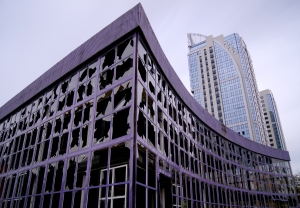I went to the 1992 Earth Summit. I was there amidst a bunch of tents, wandering through a swarm of NGO brainiacs, walking my bicycle around, my purple dance tights making me an obvious outlier in the field of khaki pants. It was a depressing spectacle, an exercise designed to fail. Sure, there was hope for a treaty — the Montreal Protocol was entering full effect and the oil companies feared they would face the same fate as the makers of Freon. They needed someone, anyone, to stop any treaty that really reduced the consumption of fossil fuels. And it quickly became clear that there were plenty of volunteers for that dirty role.
The US, under George HW Bush, was the obvious saboteur. Bush said the US way of life was not up for negotiation. But when, for just a moment, it looked like the US would go along with the treaty, Japan popped up to say it would block the efforts. That put the US, and (briefly) Japan on the side of OPEC, that group of oil companies with UN seats. This is how things work: people think big oil has to try and pay people off to be heard. The fact is, there is a queue of leaders eager to do the bidding of big oil, just waiting for big-oil’s current favourite to screw up and do something environmental.
Now, the big oil companies and OPEC states have spent years slowing any progress on climate change. They have thrown smoke for literally a generation. But if you want creativity in the anti-climate-treaty game, you need to look to PDVSA and Venezuela. Continue reading









